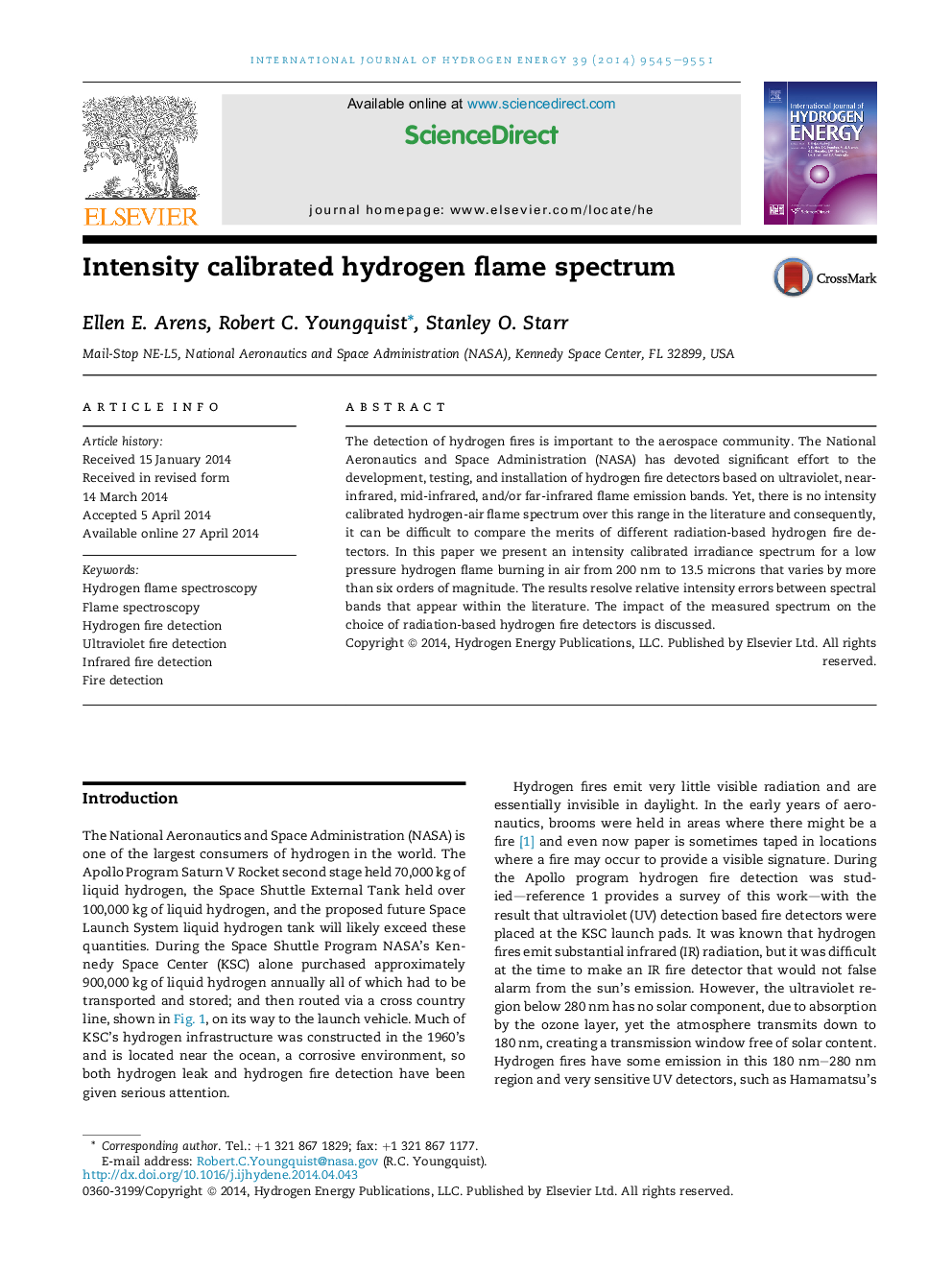| Article ID | Journal | Published Year | Pages | File Type |
|---|---|---|---|---|
| 7719252 | International Journal of Hydrogen Energy | 2014 | 7 Pages |
Abstract
The detection of hydrogen fires is important to the aerospace community. The National Aeronautics and Space Administration (NASA) has devoted significant effort to the development, testing, and installation of hydrogen fire detectors based on ultraviolet, near-infrared, mid-infrared, and/or far-infrared flame emission bands. Yet, there is no intensity calibrated hydrogen-air flame spectrum over this range in the literature and consequently, it can be difficult to compare the merits of different radiation-based hydrogen fire detectors. In this paper we present an intensity calibrated irradiance spectrum for a low pressure hydrogen flame burning in air from 200Â nm to 13.5 microns that varies by more than six orders of magnitude. The results resolve relative intensity errors between spectral bands that appear within the literature. The impact of the measured spectrum on the choice of radiation-based hydrogen fire detectors is discussed.
Keywords
Related Topics
Physical Sciences and Engineering
Chemistry
Electrochemistry
Authors
Ellen E. Arens, Robert C. Youngquist, Stanley O. Starr,
